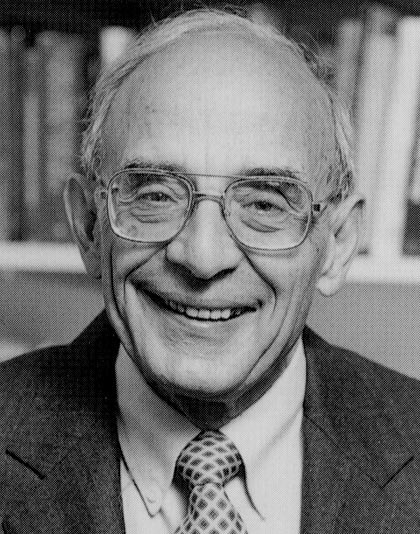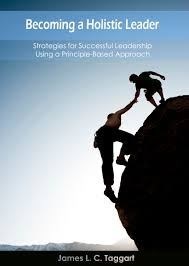Just How Smart Are You? Teaching Smart People How to Learn

Each of us has someone who has inspired us during our professional development. It may have been a boss, a community leader or someone whose writings through thought leadership have prompted reflection and inquiry. I had a few very good bosses over a 35 year working career. However, I have to be honest and admit that it’s the thought leaders who really propelled me forward.
One person who served as my leadership catalyst, who I met in 2000, and for whom I remain indebted, is Peter Senge, Director of the Center for Organizational Learning at the MIT Sloan School of Management, and author of the acclaimed book, The Fifth Discipline: The Art and Practice of the Learning Organization. However, every student of leadership–yes, Senge is a very humble and decent man–has his or her mentor. His mentor was Chris Argyris (pictured below) who earned acclaim for his theory of Double Loop Learning.
The above quotation is the opening to a 1991 landmark article that Argyris wrote for the Harvard Business Review in May 1991. Extract a few dates from the article and it could have been written in 2018. Teaching Smart People How to Learn came at an important time for corporations. Global competition was ramping up from such emerging economies as China and India; however, much has happened in the past two decades. My contention is that Argyris’ work, and in particular his 1991 article, is of vital importance to the global competitiveness of American and Canadian companies, including the effectiveness of the public sector. Here’s more from Argyris:
Most companies not only have tremendous difficulty addressing this learning dilemma, they aren’t even aware that it exists. The reason: they misunderstand what learning is and how to bring it about.
Most of us tend to approach learning as problem-solving, where we attempt to fix problems stemming from the external environment. I recall earlier in my career in the public service where courses on problem-solving were popular. However, Argyris points out that for proper learning to occur people must not just focus on the external world but also look within themselves. This means doing critical self-reflection, identifying where we may have contributed to the problem and then decide what we must do to change.
This is where Argyris introduces his concept of Single versus Double-Loop Learning. A basic example of Single-Loop Learning would be a thermostat turning itself on when the temperature drops below a pre-set level. Double-Loop, in contrast, would ask the question “why?”
At a human level, those who are supposedly highly educated and skilled excel at Single-Loop Learning. They’ve mastered certain disciplines and believe they’re capable of solving the world’s problems. Argyris argues that these professionals are actually weak at Double-Loop Learning because they seldom experience failure, and when they do (the result of their Single-Loop approach) the instinct is to blame others. As he bluntly puts it: “…their ability to learn shuts down precisely at the moment they need it most.”
Adding to the defensive patterns professionals employ when mistakes are made is the assumption that organizations make: getting employees to learn is essentially a motivation issue. So what we trot out from management are new org charts, communication strategies, employee surveys, and so on.
Double-Loop Learning is not about how employees “feel,” but rather about “how they think.”

ou may recall the 2008-09 financial meltdown which originated in the United States, with the major architect being Alan Greenspan (former Chairman of the Federal Reserve), but aided and abetted by a star-studded cast including Presidents Bill Clinton and G.W. Bush, Hank Paulson (former Treasury Secretary), Ben Bernanke (current Federal Reserve chairman), Martin Sullivan (former CEO, AIG), and the list goes on–the best and the brightest who brought the global financial system almost to its knees.
Greenspan’s once luminescent halo is now a faded relic, with his disastrous performance as Fed chief destined for future ubiquitous financial history books. Indeed, Charles Dumas (of Lombard Street Research) states that Greenspan showed “asymmetric ignorance” when he claimed he didn’t know when asset prices were in a bubble state, yet asserted to know when plummeting asset prices were more likely to cause problems.
Here are a few select quotations from those in the supposed know:
Dateline, early 2007: “At this juncture, however, the impact on the broader economy and financial markets of the problems in the subprime market seems likely to be contained.” (Ben Bernanke, Federal Reserve chairman).
On the threat of subprime mortgages during the summer of 2007: “I don’t think it poses any threat to the overall economy.” (Hank Paulson, former Treasury Secretary).
And then in May 2008, this comment by Paulson: “Looking forward, I expect that financial markets will be driven less by the recent turmoil and more by broader economic conditions and, specifically, by the recovery of the housing sector.”
We all know how that commercial turned out.
Contrast this with a statement by President Herbert Hoover in May 1930: “…I am convinced we have now passed through the worst–and with continued unity of effort we shall rapidly recover. There has been no significant bank or industrial failure. That danger, too, is safely behind us.”
However, there have been a few bright lights in the public sector. As former Federal Reserve chairman William McChesney Martin (1951-1970) once stated of the job of central bankers: “…to take away the punch bowl just as the party gets going.” At least Martin understood his role very clearly, successfully serving under five presidents.
(Source: “Crisis Economics” Nouriel Roubini and Stephen Mihm)

Then there’s Hurricane Katrina in 2005 on the Gulf Coast and the grossly irresponsible response by different levels of government. Did anyone learn anything from this disaster?
Obviously not, because in the same neck of the woods in March 2010 British Petroleum (BP) was responsible for the largest oil spill in world history. CEO Tony Hayward, hired to clean up BP’s sordid environmental reputation, was recently sacked as CEO. Now he has time for lots of sailing regatta while receiving a near $1 million annual pension.
One example close to home, given its proximity to my neighbourhood, is Nortel, where two cousins once worked before this once-proud Canadian company imploded as the result of managerial incompetence and corruption. This has to be the saddest corporate story in Canadian history, a company that once accounted for the majority of research and development in Canada.
In reference to the above-noted financial meltdown, let’s not forget the decades of managerial and professional head-in-the–hole thinking by General Motors and Chrysler, all the while the rest of the world was churning by as the Japanese, Korean and German automakers laughed at North America.
Examples abound of where supposedly “smart” people, working in business or public policy, thought they had it figured out and knew the answers. The problem persists. Being consumed by your own self-perceived brilliance is in reality a major learning disability, one that not only impedes critical self-reflection but also creativity and innovation. At its worst, it can result in harm to others and more broadly society and the environment (e.g., the BP oil spill).
So what explains the defensive reasoning patterns employed by supposedly smart people? Argyris argues that it’s not the attitudes held by senior managerial leaders towards initiating change or continuous improvement, for example, but rather it’s how these individuals reasoned about how they would behave, along with those they lead. Instead of people stopping every time to reason about an issue or a problem, what occurs is that each of us develops a “theory of action.” This is tantamount to a set of rules that guides us as we interact with the real world, and it also helps us to understand how others behave. Over time these rules become automatic; we don’t realize that we’re using them.
Sounds pretty theoretical, doesn’t it? How about this: think of a time when management in your organization introduced a change initiative. The top dog and his or her senior managers pushed down a whopper of a new change. Middle managers were told to get everyone on board. But no one bit. Hmmm. Sound familiar?
Why did this happen? For one thing, the words emanating from those with authority were not congruent with their actions. Argyris refers to this tension as Espoused Theory versus Theory-in-Use. Stay with me folks!

Argyris explains it in his way: “…people consistently act inconsistently, unaware of the contradiction between their espoused theory and their theory-in-use, between the way they think they are acting and the way they really act.”
He continues by explaining that theories-in-use are based on the same governing values, from which people’s behaviour tends to be reflected. Their aim is to avoid threats, embarrassment, vulnerability or incompetence:
1. To retain total control
2. To maximize winning and minimize losing
3. To suppress negative feelings
4. To be as rationale as possible
Reflect on this.
When educated people in positions of authority or influence engage in defensive reasoning, the result is their keeping private self-doubts, inferences and assumptions that determine their behaviour. And by consequence they refrain from self-reflection, inquiry and engaging with others to explore other possibility and solutions.
I’d add, based on my observations of the above examples (e.g, Tony Hayward, Alan Greenspan), that a downward corkscrew pattern is established, in which mistakes and the failure to acknowledge them occurs, setting the stage for disaster. Witness the ongoing debt ceiling fiasco in the U.S., perpetrated and sustained by intransigent partisan politicians.
At a macro-economic level, the errors imposed on society by so-called “smart” people can be devastating when it comes to competitiveness and wealth production. Fortunately, citizens are starting to awaken to the faux-intelligentsia enlightenment, to which they have been held captive for decades. In the meantime, the Chinese, Indians, South Koreans, Brazilians, Taiwanese, etc. have leaped forward to build their economies and global market shares.
So in the end, just how “smart” are we in Canada and America? Do we get it, when it comes to preserving our environment, collective wealth and standard of living?
Practical men, who believe themselves to be quite exempt from any intellectual influences, are usually the slaves of some defunct economist. -- John Maynard Keynes
__________________________________________________________________________________________________

Visit Jim’s e-Books, Resources and Services pages.
Articles from Jim Taggart
View blog
Your faithful correspondent has been a long-time proponent of self-empowerment, writing extensively ...

My recent posts explored what it means to be a team, the five levels of teamwork, how to build perfo ...

Date Line: 1994, · Forbes Magazine · THE NEW POST-HEROIC LEADERSHIP ”Ninety-five percent of American ...
Related professionals
You may be interested in these jobs
-

Développeur Python
Found in: Jooble CA O C2 - 4 days ago
Servicerocket Canada FreelanceLorem ipsum dolor sit amet, consectetur adipiscing elit. Suspendisse varius enim in eros elementum tristique. Duis cursus, mi quis viverra ornare, eros dolor interdum nulla, ut commodo diam libero vitae erat. Aenean faucibus nibh et justo cursus id rutrum lorem imperdiet. Nunc ut ...
-
CAD (computer-aided design) technologist
Found in: Talent CA 2 C2 - 3 days ago
Trison Tarps Inc. Brantford, CanadaEducation: College/CEGEP · Experience: 2 years to less than 3 years · or equivalent experience · Tasks · Prepare engineering designs and drawings · Develop and prepare design sketches · Write specifications · Complete documentation packages and drawing sets · Read and interpret b ...
-
child care provider
Found in: Talent CA 2 C2 - 3 days ago
Denise Brunsdon Bradford West Gwillimbury, CanadaWork Term: Permanent · Work Language: English · Hours: 40 hours per week · Education: Secondary (high) school graduation certificate · Experience: 3 years to less than 5 years · Work setting · Employer's home · Optional accommodation available at no charge on a live-in basis. Not ...


Comments
Graham🐝 Edwards
5 years ago #1